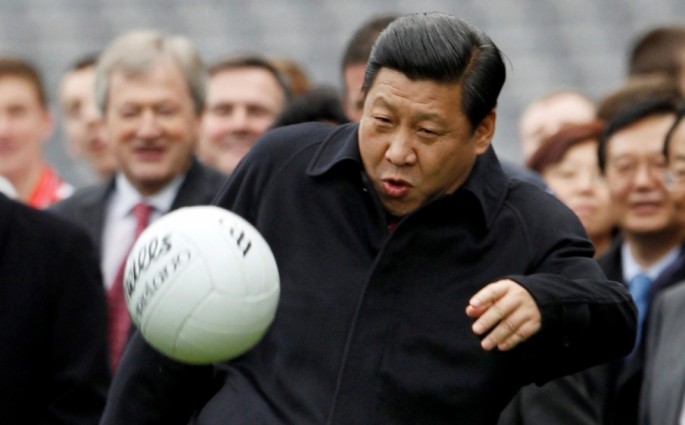The state-sponsored Xinhua publication explored the topical subject of association football, or soccer, on Sunday after one of the sport's greatest fans, China's President Xi Jinping, released a soccer-reform document on Friday.
After the national Chinese team qualified for the first time in World Cup history in 2002, the Chinese leader is hopeful that the east Asian economic giant can one day add the world game to the list of spheres where it exerts a potent influence.
The feature piece was not bashful in its examination of China's soccer culture, as it tackled the oft-repeated question of why the world's most-populous nation has not been able to produce an 11-player squad to rival those of top soccer nations like Germany and Brazil.
Xinhua readily admitted that China has struggled over the last few decades in the area of football, but clarified that the country's population of around 1.4 billion only consists of 30,000 registered players.
Meanwhile, 6.8 million players are registered in Germany, and over 1.5 million in Brazil--it is an issue of relativity.
Despite the statistical disadvantage that plagues it, China has made major attempts to revitalize the national side, with the recruitment of world-class coaches such as Bobby Houghton and ex-Real Madrid manager Jose Antonio Camacho, serving as examples.
However, such efforts have failed to make a significant impact, and a 5-1 loss to Thailand's Under-23 side in 2013 was described as "humiliating."
When the president spoke of his personal ambitions for China in 2011, all three concerned soccer: another World Cup qualification, an occasion as the host nation and an eventual World Cup victory.
Xi's words might have motivated last month's Asian Cup performances, when China won three straight group games, before losing to Australia in the quarter-finals.



























